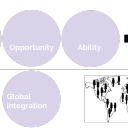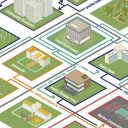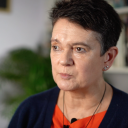We need to measure what matters

The Northern Irish Assembly: where welfare measurements are being used.
The 2009 Stiglitz, Sen and Fitoussi report drew widespread attention to the inadequacies of GDP as an indicator of social progress. Traditional approaches measure how a society is progressing based on the view that a growing economy will result in an improved society. While economic growth is important, it is not the only thing that matters. To truly measure progress, governments need to focus on measuring the wellbeing of citizens.
Wellbeing is a holistic concept comprising social, environmental, economic and democratic outcomes. Measuring citizen wellbeing should be a key focus of governments at all levels. The Carnegie UK Trust has actively supported governments across the UK to develop wellbeing frameworks to guide what they do. Most recently, the Trust has supported the Northern Ireland Executive to place wellbeing at the heart of its work through the new Programme for Government. Internationally, the development of wellbeing frameworks by governments to define their purpose, set priorities and measure progress has gained traction at a jurisdictional level.
But wellbeing approaches shouldn’t be restricted to this level. The OECD describes wellbeing as ‘a description of social progress in terms of improvements in quality of life, material conditions and sustainability’ (OECD, How’s Life?). While policies at jurisdictional levels are important for these factors, individual wellbeing is also shaped at a very localised level.
In this regard, city and regional-level governments have an important role to play in promoting wellbeing. Given the dominant focus on jurisdictional level approaches to developing wellbeing frameworks, governments at city and regional levels face particular challenges in establishing and using wellbeing frameworks.
The OECD and Carnegie UK Trust have recognised this challenge, and come together to develop straightforward guidance for decision makers in regional and sub-regional governments on the benefits, challenges and possibilities of using wellbeing frameworks. The guidance includes evidence from 16 case studies across the OECD, including regions and cities in North America, Europe and Australia that are developing and using wellbeing strategies, objectives and measures.
The guidance outlines the common steps that governments in cities and regions across the world have taken in developing wellbeing frameworks to bring data collection, policy and community priorities closer together.
Key messages from the guidance include that the process of developing a wellbeing framework is an ongoing one, involving multiple iterations and refinements, and enduring leadership by local leaders. While leadership from the top is important, so too is continuous communication with and engagement from citizens. Meaningful citizen engagement is important to ensure community by-in to the wellbeing framework.
The use of wellbeing frameworks to set priorities and measure progress, at all levels of government and across the world, is still in its infancy. However, we know that implementing a wellbeing framework can have a transformative effect on governance, allowing for greater transparency and accountability, and more joined-up working and public sector reform. Ultimately, using a wellbeing approach to determine and measure what really matters leads to better outcomes for citizens.






